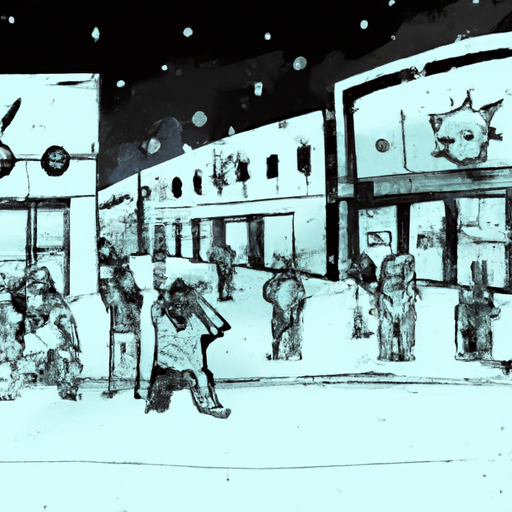The Alarming Opioids Crisis Chief: Pikwakanagan First Nation Declares State of Emergency
Hello friends, I recently came across an article on MSN that sheds light on the grave situation of the opioid crisis in Canada. The Algonquins of Pikwakanagan First Nation has declared a state of emergency due to the intensifying haze of opioids devastating their community. This raises serious warnings about the continued increase of opioid-related incidents and deaths across the nation.
State of Emergency: An Indication of the Gravity of the Opioid Crisis
Impacted communities, such as the Algonquins of Pikwakanagan First Nation, are no strangers to the opioid crisis. But the declaration of a state of emergency signifies a tipping point, with the community unable to contain the issue’s impact on its own. This alarming development underlines the severity and urgency of addressing the opioid crisis head-on, which continues to exacerbate homelessness, escalate crime, and stranglehold communities’ health and safety.
Key Points on the Crisis
- The declaration of the state of emergency is a cry for help to mobilise more resources and support from higher levels of government.
- The opioid crisis is not just about substance abuse, but also branches into associated issues like homelessness and increasing crime rates, severely impacting community life.
- Initiatives such as opioid class action lawsuits show a proactive response, holding pharmaceutical companies accountable for the manufacturing and distribution of the harmful substances. These actions will fortify ongoing efforts in combating the crisis.
- Despite commendable efforts on local initiatives such as naloxone distribution programmes, the crisis continues to escalate, highlighting the need for heightened preventive measures and treatment solutions.
Solutions: Efforts to Combat the Crisis
Addressing the opioid crisis requires multifaceted solutions. On one hand, community initiatives such as distribution programs for naloxone, a medication used to block the effects of opioids, are pivotal. These programs have evidently saved lives by preventing opioid overdoses. Yet, their rate of usage suggests a battle being fought uphill.
On the other hand, the initiation of an opioid class action lawsuit against pharmaceutical companies is a step toward systemic change. These actions could potentially impact the manufacturing and distribution of opioids, limiting their accessibility and contributing to a reduction in substance abuse.
However, these measures, while significant, are not enough in isolation. Local initiatives need to be coupled with targeted government policies to provide support for homeless populations, reduce crime, and increase access to treatment for those affected.
Calling for Collective Effort
The announced state of emergency by the Algonquins of Pikwakanagan First Nation calls on us all to acknowledge the opioid crisis as a significant public health threat, demanding immediate attention and collective action. It calls for governments, institutions, and communities to collaborate and champion policies and initiatives that can bring about meaningful change in these lives severely affected. Mere acknowledgment isn’t enough; acting towards combatting the opioids dilemma is the order of the day.
In closing, the state of emergency declared by the Algonquins of Pikwakanagan First Nation is a distress call to the rest of Canada. The opioid crisis, intertwined with homelessness and escalating crime rates, is a glaring issue that calls for collective acknowledgement and action. Despite local initiatives like naloxone programs and opioid class-action lawsuits, the crisis’s height calls for further intervention from higher government levels to amplify efforts towards prevention and treatment solutions.


